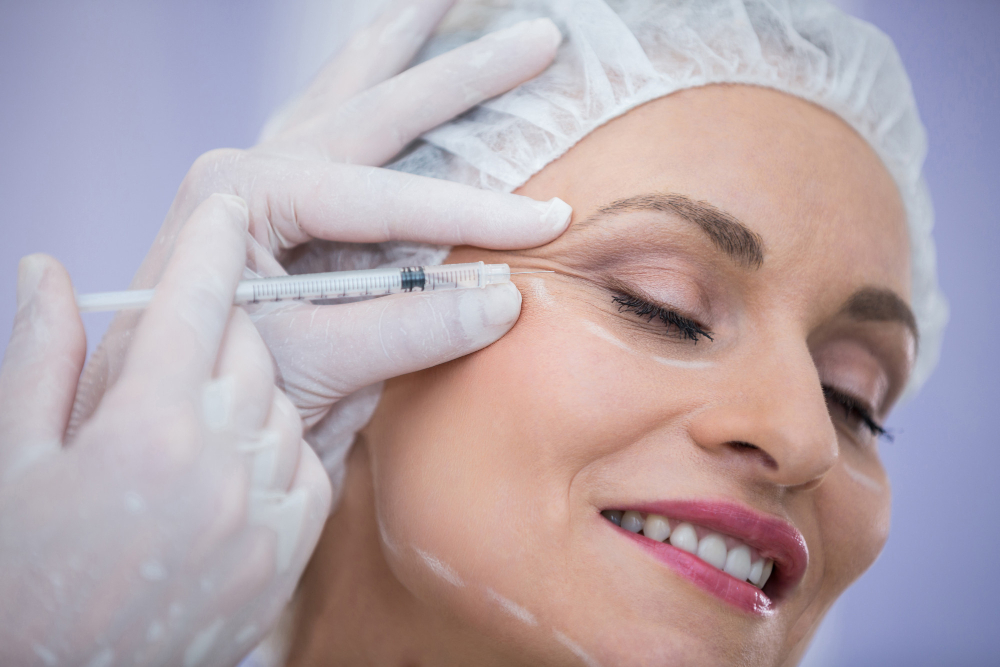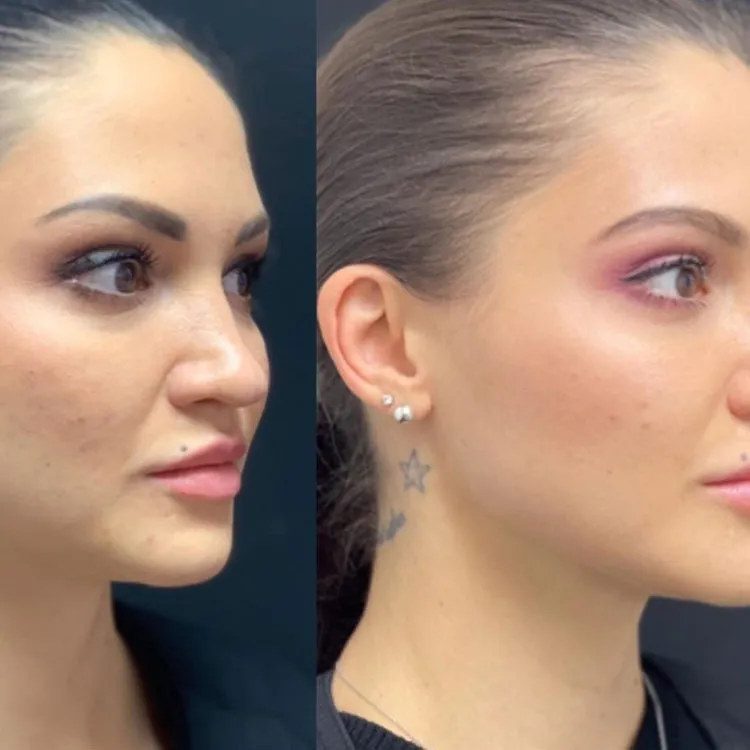When patients get Botox injections, they can get the best possible outcomes by following the aftercare guidelines. It also helps prevent Botox from spreading to other areas and causing bruising.
Light face workouts in the morning before getting Botox are encouraged, as is taking it easy for the remainder of the day, maintaining a normal blood pressure and heart rate, and not touching, rubbing, or putting any physical pressure on the treated region.
As an added convenience, we have included some helpful guidelines for recovering from Botox treatment.
Care instructions for Botox Patients
If you want to make sure you get the most out of your Botox treatment, make sure you follow these guidelines.
Please Refrain from working out for 24 hours
For at least a day, you should not engage in your typical physical activity. Your doctor might advise a few days of waiting.
Exercise improves blood circulation. By doing so, the toxin might end up in places it was not intended to go and lose some of its potency where it was injected. Additionally, it makes bruising more likely.
Muscle contraction during exercise has also been linked to reduced Botox efficacy.
On the other hand, it is perfectly safe to practice making angry, happy, and perplexed facial expressions.
These actions may hasten the onset of Botox’s beneficial effects.
Do not wear makeup for a while
Makeup applications should be put on hold for at least 24 hours after receiving a Botox injection. When you apply makeup, you will be rubbing the skin, which may cause the toxin to become more widespread.
Sit up
For the first four hours following Botox treatment, sitting up straight is advised. By bending over or lying down, the toxin could spread, and bruises could get worse.

Discuss Medication Options with your Doctor
You could bruise more easily if you take certain medicines. Make sure to inquire with your physician regarding the appropriate time to resume taking them.
Aftercare Precautions
It is important to take care of yourself after getting Botox injections. Please remember the following details on the day of your surgery.
Put down the liquor
Alcohol should be avoided for 24 hours prior to receiving Botox. Having a few drinks can make bruising more likely.
This is true both before and after a course of treatment has been completed. After obtaining an injection, you shouldn’t partake in alcoholic beverages for at least a day.
Avoid making Facial Contact
In order to avoid spreading any kind of infection, refrain from touching your face for at least 24 hours. Several medical professionals believe that this period should continue until the third day.
If you have had Botox elsewhere on your body, you should follow the same precautions.
Expert massages of the affected areas are included. Although getting a massage is helpful, you should wait a few days before making an appointment.
Steer Clear of any other Skin Treatments
The effects of Botox on the muscle will not be felt immediately. You should wait 24 hours before getting a facial, facial massage, exfoliating scrub, or dermal fillers.
If you get these procedures too soon after receiving injections, their efficacy may suffer.
Avoid getting any sleep on the Treated Areas
The injected areas should be avoided at all costs when sleeping. This will reduce the amount of force exerted on the muscles and allow the Botox to take effect more quickly.
In addition, when your treatment is complete, you should wait at least four hours before going to bed.
Keep out of the sunlight
Try to stay out of the sun for at least four hours. Flushing and higher blood pressure are both side effects of being in a hot environment, and both can contribute to an increased risk of bruising. For maximum safety, avoid direct sunlight for twenty-four to forty-eight hours.
The use of tanning beds, hot tubs, hot showers/baths, and saunas is also discouraged.
When to Seek Medical Attention
Mild discomfort, redness, and swelling are common responses to Botox treatment. Commonly, you can expect to feel normal again after a day.
Bruising is yet another negative effect that frequently occurs. An ice pack on the affected area may provide some short term relief. Bruising usually disappears after two weeks.
But if you suffer any of the following symptoms, you should seek medical attention:
- muscle weakness
- swallowing issues
- speaking challenges
- breathing difficulties
- dysfunctional bladder control
- vision changes
Although uncommon, these negative reactions require prompt medical attention.
Takeaway
Botox can be administered in the office of a medical expert. After that, you could just go home, but you need to take care of yourself as per the usual procedure for recovering from Botox. This is crucial for achieving the greatest results.
Discuss your post-Botox activities with your physician if you have any concerns or questions. Advice on how to care for yourself after treatment will be tailored to your individual needs and habits.
With Dentox’s comprehensive education and training program, you, as a medical professional, have the remarkable opportunity to truly transform your patients’ lives. By skillfully assisting them in attaining their desired cosmetic goals, you can ensure a seamless experience devoid of any concerns.
For a comprehensive selection of online classes, we kindly direct you to our website at https://dentox.com/all-courses/botox-training/. Alternatively, if you prefer a more hands-on approach with live patient courses, we invite you to explore the exceptional opportunities available at https://dentox.com/live-courses/.



